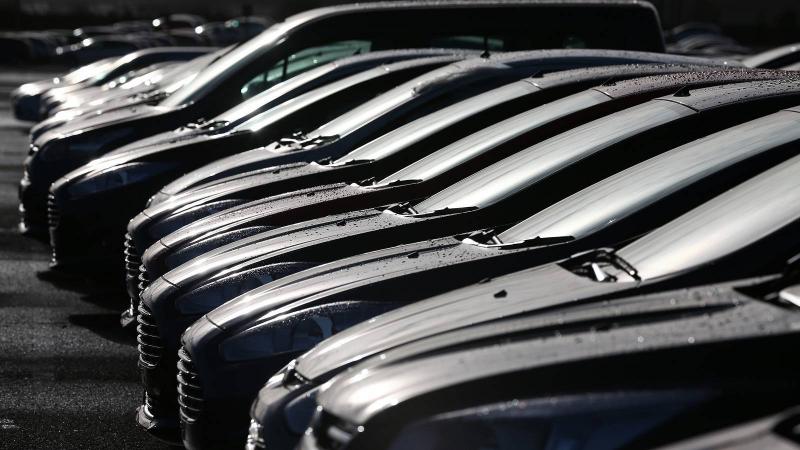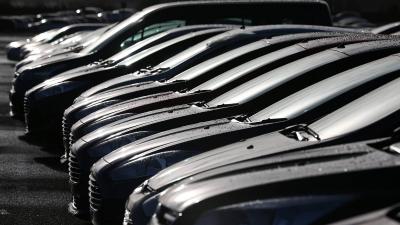The General Union of Lebanese Workers held a press conference at the Workers' House in Jal El Dib, titled "The Catastrophe of Customs Dollar on the Imported Used Car Sector and the Ability of Lebanese to Secure Their Right to Transportation." President of the Union Maroun Khoury and President of the Used Car Dealers Union in Lebanon Walid Francis spoke during the event, which was attended by a crowd of car dealership owners.
Khoury stated: "In the midst of the largest financial and economic collapse, governmental and presidential vacuum, and a country suffering from the worst transportation crisis in the world, the minds of failure are working to burden the Lebanese families with a new load and a disaster represented by the customs dollar priced at 15,000 LBP, a decision that can only be described as foolish and criminal against 82% of Lebanese people living below the poverty line after being robbed by the corruption system."
Khoury noted that "the killing tool used by the minds of the officials has now reached the transportation sector, a sector plagued by neglect, chaos, and a lack of government investment in plans to expand road networks and public transportation, in addition to neglecting to organize private shared transportation services."
He explained that this neglect of the transport sector, which is a vital and essential component of people's lives and the economy, has created a significant gap in the economic and social equations. He said that transportation expenses to work equate to wages, while expenses for schooling and university are equivalent to tuition fees.
Khoury viewed "the cost of transportation as the biggest burden on families, production, and the economy, and instead of addressing this gap, they are issuing outrageous decisions imposing taxes in the form of the customs dollar across the transportation sector, which will surely lead to increased vehicle prices, registration fees, spare parts, and all maintenance chains, including fuel prices, creating a catastrophe concerning the rising cost of transportation in Lebanon that will inevitably result in more suffering for families and bankruptcies across many sectors."
He emphasized, "To simplify the issue for the Lebanese public who may not understand the implications of the customs dollar being set at 15,000 LBP, a small, affordable car that previously had a customs value of 5 million LBP will now, due to the new customs dollar, cost 80 million LBP. This means that a worker earning the minimum wage would need to save for three years to accumulate this customs fee, assuming they do not spend a single penny during that time, without considering other registration-related expenses that are nearly on par with it. In other words, this bohemian decision will prevent the majority of the Lebanese population from acquiring a car to commute to work, university, or home, in a frightening scenario imposed by a failed state. There is no shared public transport nor the ability to travel in taxis, where the service fare has now reached 80,000 LBP, nor the capacity to purchase a private car or cover its maintenance costs. Thus, the Lebanese are facing a dead end, with the only horizon being a revolution against this life-killing system."
Khoury concluded by urging the caretaker government and the parliamentary council to "cancel these taxes and study the costs of transportation and their impact on the economy, as well as find ways and suggestions to alleviate the burden until the state can provide a modern transport network, similar to every civilized or developing country." He also called on Lebanese people to "participate in actions opposing these criminal taxes against them and to rise against these sick policies aimed at impoverishing and humiliating them."
For his part, Walid Francis, President of the Used Car Dealers Union, pointed out that "in all countries, consumers pay 5% of the customs value, while in Lebanon, they pay 50% plus 11% VAT, equating to 61% in state fees on every car imported at the Port of Beirut without including registration fees." He mentioned: "The automotive sector pays 5 million dollars daily to the Lebanese state, which enters the treasury, and 3 million dollars daily to the Vehicle Registration Authority, which are revenues added to the treasury. After a long wait and a promise that the customs dollar would be set at 8,000 LBP, we are surprised that the decision was issued by the Central Bank at 15,000 LBP for the customs dollar."
He announced that "this matter was amended after in-depth studies by customs administration officials who thought that there should be a modification to the minimum thresholds. This minimum is relevant to the citizen earning the minimum wage and the citizen wanting to buy a car under 10,000 dollars. This project was on the agenda of the Cabinet, which aimed to include the decision of 15,000 customs dollar with the release of stranded cars at the port. This project was withdrawn for reasons unknown to us."
Francis emphasized the need to approve the project's thresholds as soon as possible, especially since there are approximately 4,500 cars stranded at the Port of Beirut, and it is crucial to release them quickly, particularly since their customs fees have increased from 1,000 dollars to 16,000 dollars.
He announced that "tomorrow, we will hold a warning protest at the Port of Beirut at noon. We invite all car traders, shipping companies, transport and insurance companies, maintenance garages, and spare parts shop owners to show solidarity. If we do not receive any response from the officials within 48 hours following the warning protest, we will stage a strike at car dealerships across Lebanon and close all roads adjacent to the dealerships."




